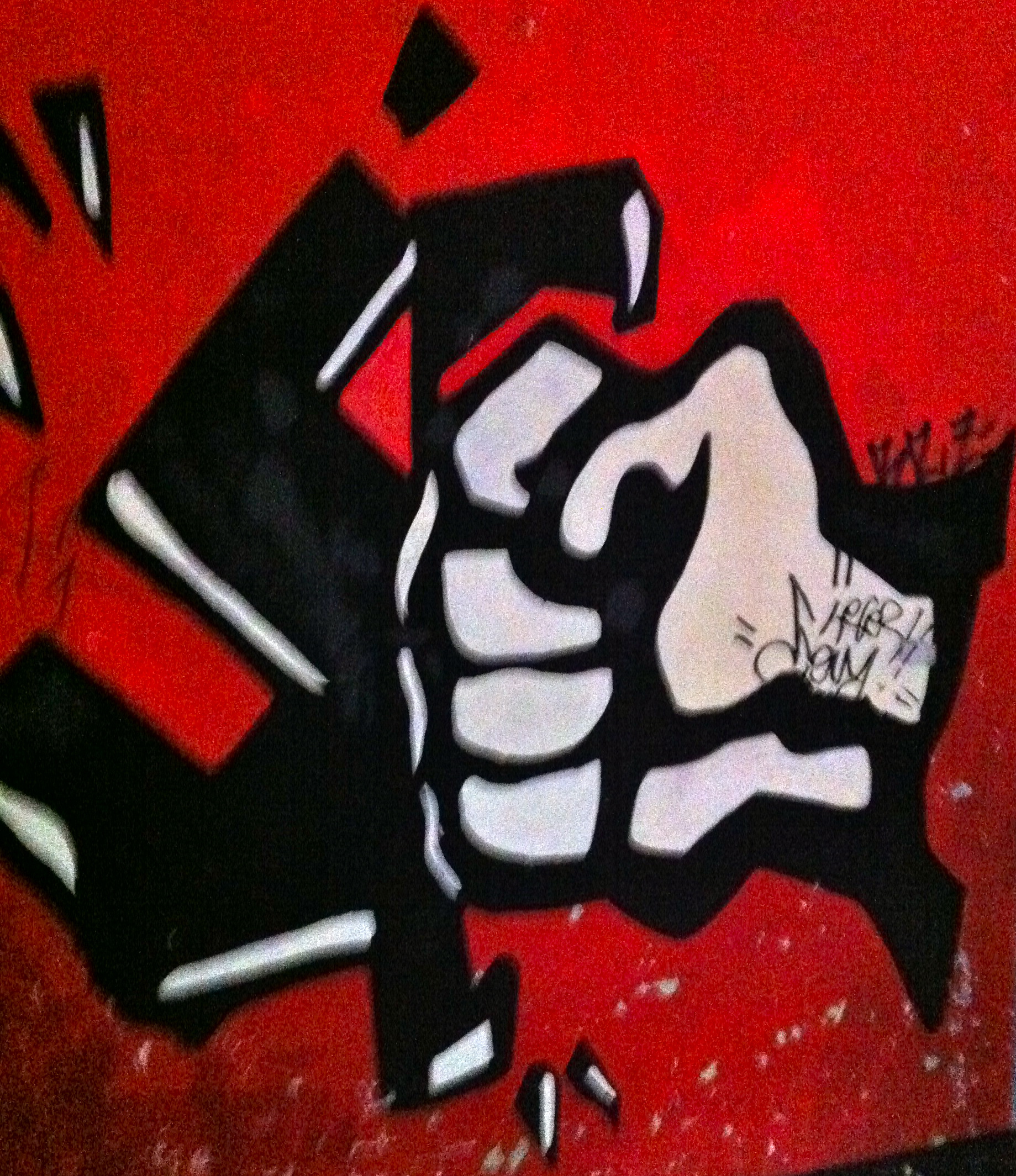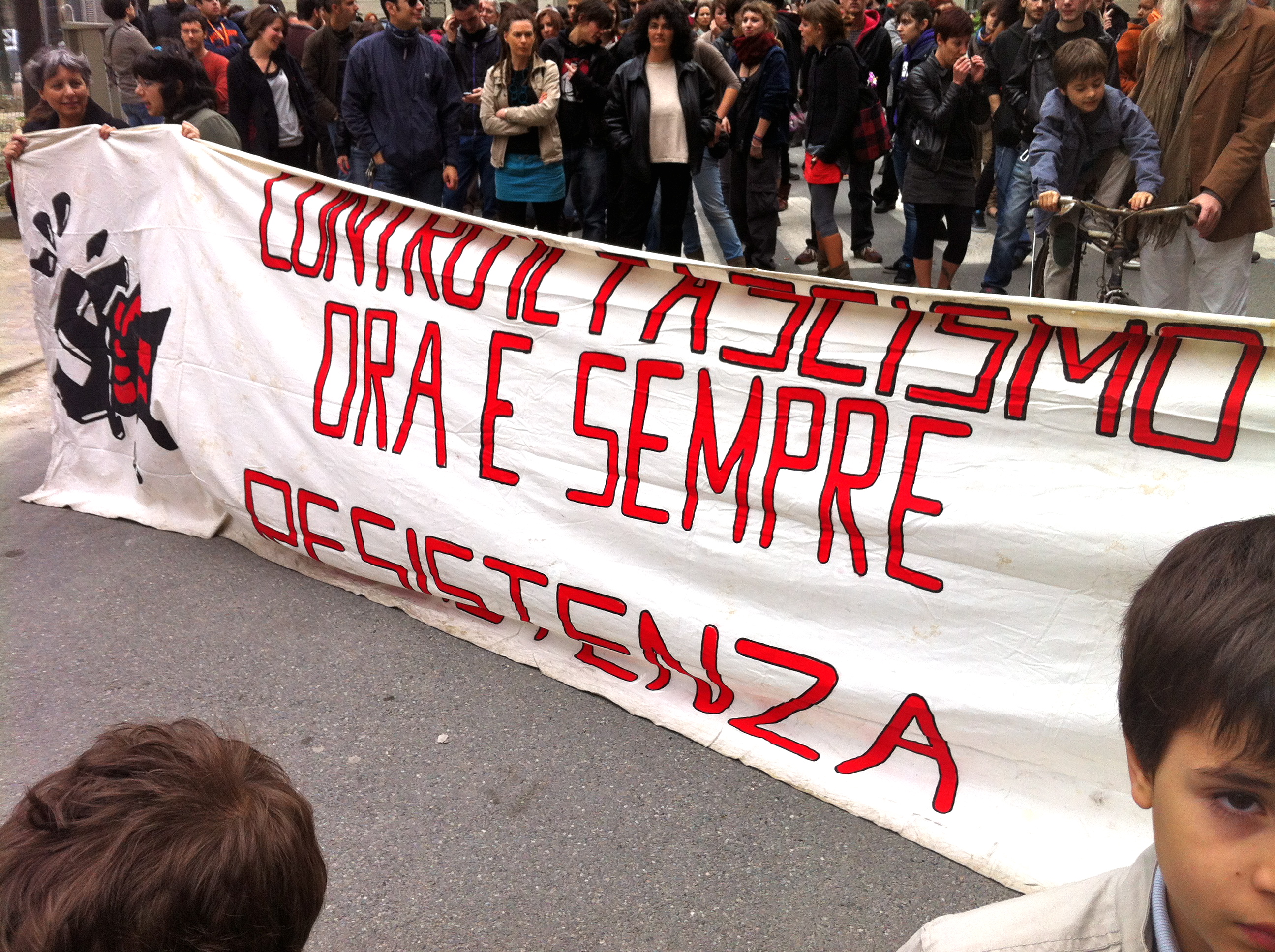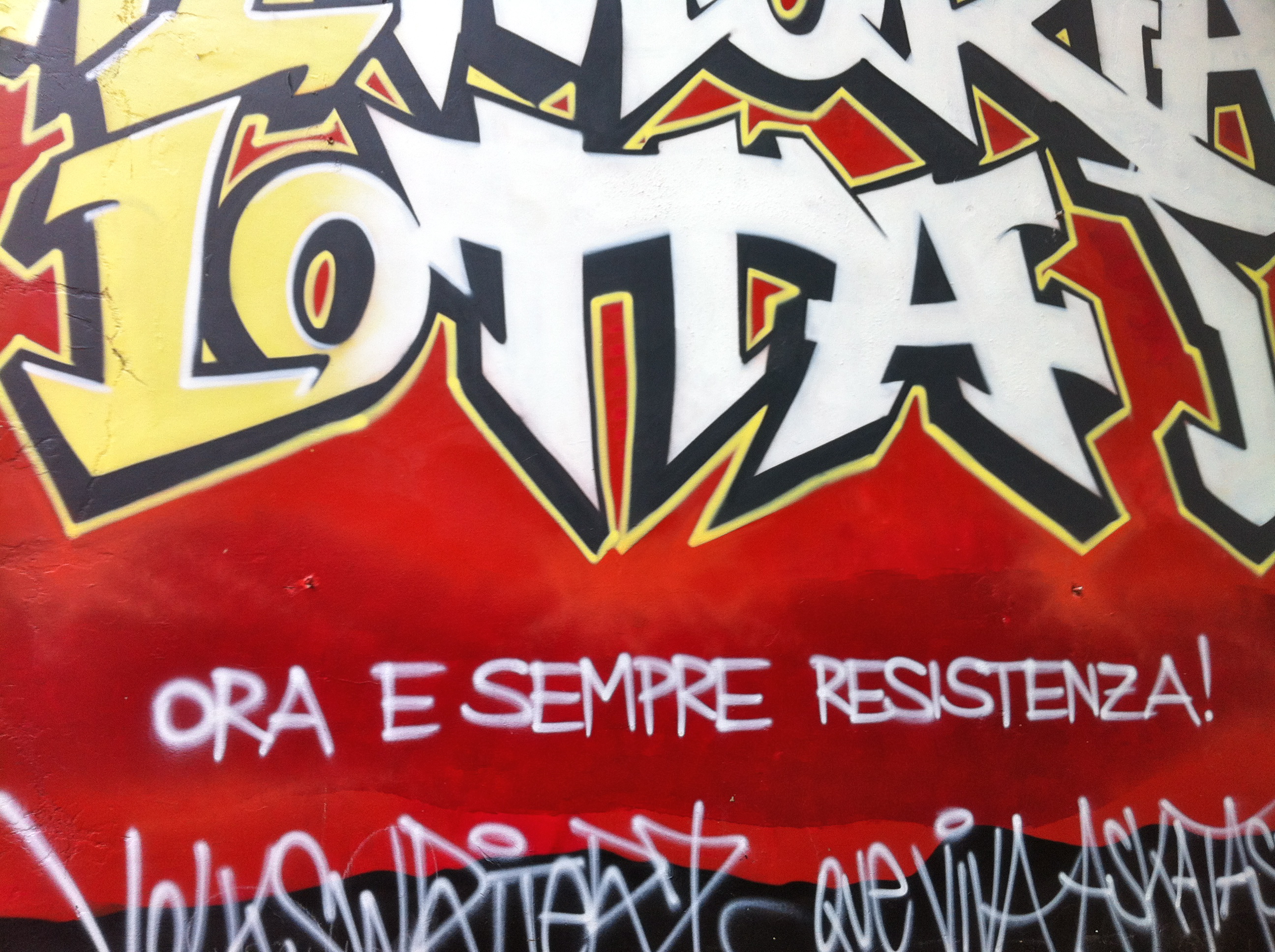 Occupation by a fascist or imperialist power is perhaps one of the most common experiences of the last century. This is certainly true of Italy, which endured nearly two decades of fascist rule, culminating in several years of occupation by the Nazis during the Second World War. Today Italy celebrates resistance to this oppression. Here in Europe, though, this experience of occupation and resistance is being forgotten all too quickly. As a result, Europe is witnessing the return of National Socialism.
Occupation by a fascist or imperialist power is perhaps one of the most common experiences of the last century. This is certainly true of Italy, which endured nearly two decades of fascist rule, culminating in several years of occupation by the Nazis during the Second World War. Today Italy celebrates resistance to this oppression. Here in Europe, though, this experience of occupation and resistance is being forgotten all too quickly. As a result, Europe is witnessing the return of National Socialism.
Two days ago, in the French elections, Marie Le Pen won nearly 20% of the national vote. She ran on an explicitly racist platform, spewing demagogic vitriol about halal meat as a threat to French values and promising to clamp down on immigration. But in addition to playing on nostalgic white desires for the imaginary homogeneous France of an era before mass immigration, globalization, and financialization, Le Pen promises to leave the EU and to support a generous welfare state, early retirement, and old age pensions. On many of these positions, she is far to the left of the nominally socialist candidate François Hollande.
Extreme xenophobia and racism married to a generous socialist state for a white nation. Sound familiar? This was the formula of the Nazi – an abbreviation of National Socialist – party, although not many people remember the socialist elements of the party’s ideology.
Rabble-rousing populists of this ilk are making gains across Europe in the context of the austerity policies implemented by mainstream parties of both the Right and the Left over the last two years. The center-right government of Mark Rutte in Holland caved in on Monday after Geert Wilders, Le Pen’s Dutch equivalent, withdrew his support for the government because of resistance to austerity. In Prague, massive popular protests – the biggest since the Velvet Revolution – have brought the governing party to the brink of collapse as a result of its implementation of unpopular spending cuts.
We are living through a very dangerous moment, one in which the extreme right is set to capitalize on the la ck of a strong progressive alternative to the horrendous, failed policies of austerity pursued by European elites, Sarkozy and Merkel foremost among them, since the financial crisis engulfed Europe.
ck of a strong progressive alternative to the horrendous, failed policies of austerity pursued by European elites, Sarkozy and Merkel foremost among them, since the financial crisis engulfed Europe.
In the face of this return of National Socialism, it is more urgent than ever to revive the memory of anti-fascist struggle in Europe. Salutary, then, that today was the celebration of Italy’s liberation from the Nazi occupation during the Second World War.
This evening I participated in a torch-light procession of partisans – guerrilla fighters against the Nazis and Italian fascists during World War Two – and their friends and family here in Torino to celebrate the Day of National Liberation. Here are some photos of the march:
[slideshow]
Notice how diverse the crowd was in terms of age. For Italy, it was also fairly multi-racial, with a strong anti-racist showing.
During the march I spoke to a young medical student named Federico. He explained that the national association of Italian partisans (whose acronym is ANPI in Italian) was only open to actual fighters during the Second World War until four years ago. At that point, though, a decision was made to open the organization up to younger people in order to transmit its values to new generations. The point, in other words, is to keep the memory of the anti-fascist, anti-Nazi struggle alive while also trying to make that memory active in the present. How can the heritage of the partisans be made meaningful in today’s world, the marchers asked?
 The march concluded with a series of speeches by partisans on a stage in Torino’s Piazza Reale. Like Federico, these men stressed that the legacy of anti-fascism needs to be kept alive in the present. Unfortunately, no elderly women were invited to speak, although, as Roberto Rosellini’s great film Roma, città aperta shows, women played a vital role in fighting the fascists. A young woman did, however, make a powerful argument for the need to fight the advance of the Right within Italy and throughout Europe.
The march concluded with a series of speeches by partisans on a stage in Torino’s Piazza Reale. Like Federico, these men stressed that the legacy of anti-fascism needs to be kept alive in the present. Unfortunately, no elderly women were invited to speak, although, as Roberto Rosellini’s great film Roma, città aperta shows, women played a vital role in fighting the fascists. A young woman did, however, make a powerful argument for the need to fight the advance of the Right within Italy and throughout Europe.
With Italy and the rest of Europe moving into increasingly difficult economic straits, this message needs to be amplified in every way possible. As Rosa Luxemburg might have put it, today it’s a case of international socialism or Nazi barbarism.
I’ll give the last word in this posting to the partisans. Here’s a version of the classic partisan song Bella Ciao:
[youtube=http://www.youtube.com/watch?v=duBhBTld5iM&feature=related]